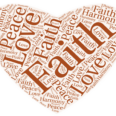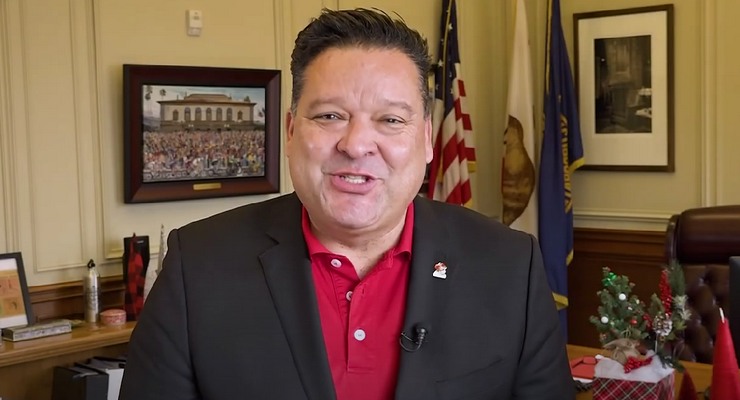 Considered by many to be the oldest form of hatred, antisemitism has been around for well over 2,000 years. Although there have been ebbs and flows, antisemitism has never been more prevalent over the last fifty-plus years than it is today. So if it has been around for so long, what is the big deal about it happening now?
Considered by many to be the oldest form of hatred, antisemitism has been around for well over 2,000 years. Although there have been ebbs and flows, antisemitism has never been more prevalent over the last fifty-plus years than it is today. So if it has been around for so long, what is the big deal about it happening now?
It is a HUGE deal. It is causing significant fear and security issues for the Jewish community. And it is essential to remember that leading experts on hate often have considered antisemitism to be the “canary in the coal mine.” With antisemitism on the rise, hatred towards other traditionally marginalized ethnic groups is not far behind.
So what is antisemitism?
The term “antisemitism” was coined in 1879 by German journalist Wilhelm Marr as a targeted prejudice against or hatred of Jews. On May 26, 2016, the International Holocaust Remembrance Alliance adopted the following working definition of antisemitism:
Antisemitism is a certain perception of Jews, which may be expressed as hatred toward Jews. Rhetorical and physical manifestations of antisemitism are directed toward Jewish or non-Jewish individuals and/or their property, toward Jewish community institutions and religious facilities.
Some may say this is just an “overreaction” to words and beliefs people share. Yet, the statistics prove otherwise. According to the Anti-Defamation League, in the Los Angeles area alone, antisemitic incidents rose 29% from 2020 to 2021 and 217% from 2017 to 2021. And while 2022’s figures have not been published, they are expected to be even higher.
Last month, FBI Director Christopher Wray addressed this increase. During a speaking engagement, he said, “A full 63% of religious hate crimes are motivated by antisemitism—targeting a group that makes up just 2.4% of our population. Foreign terrorist organizations like ISIS have promoted antisemitic violent extremism for decades. They continue to target Jewish Americans in their attack plots. But we also confront the threat of people here, on our soil, whose hateful views—often paraded online—boil over into acts of violence.”
Think Director Wray’s words are just rhetorical; tell that to Thomas Meixner’s family. Meixner, a University of Arizona professor, was killed two months ago by a graduate student who walked into his office and shot him to death. The student had sent several threatening text messages to another professor, espousing hatred for Jews and accusing Meixner of orchestrating a Jewish-led conspiracy against the student. While these messages were reported to school officials and the campus police, little was done. And although while Meixner was not Jewish, the student believed he was and carried out this heinous act. Thomas Meixner’s killing is a stark reminder of what happens when serious antisemitic threats aren’t met with serious responses.
This is just one example. Want a few more? How about the hostage situation at a synagogue in Colleyville, TX, that took place earlier this year? Or the killing of three at a synagogue in Poway in 2019? Or the murder of 12 at the Tree of Life synagogue in Pittsburgh and the countless other incidents where Jews have been made to feel unsafe when they entered their spiritual home.
It isn’t just violence but also incidents of intimidation. Remember the photos and videos from the 2017 Charlottesville, VA “Unite the Right” rally where white supremacists marched with tiki torches chanting, “Jews will not replace us!”
The Jewish community feels like we are being hit from all sides. The current climate of hatred towards Jews has directly impacted how they choose to engage. This includes feeling uncomfortable or frightened to wear a Star of David necklace or a yarmulke in public for fear of being identified as a Jew. It has also hindered what they may say that could “out” them as being Jewish.
Take Elkan Pleat, a 16-year-old living in Danville, a San Francisco Bay Area suburb, as an example. In October, Elkin publicly spoke during his local school district’s school board meeting, telling the board members that for the last two years, he had hidden his Jewish identity from his school community out of fear of what might happen if people knew he was Jewish. During his 3-minute remarks, he reported that since he started high school, he had seen more than 20 swastikas around his campus and endured hearing his fellow students tell jokes about how someone should “finish what the Nazis started,” often referencing gas chambers and ovens.
This is just one of the hundreds, even thousands of examples of how many Jews have felt forced to hide an essential part of their identity to avoid being a target of either verbal or physical attacks.
How about the flyers strewn on driveways in our local community and all across the country that links Jews to everything from COVID and mass immigration to gun control and “how every aspect of Disney child grooming” or “Trump’s Campaign Funding” is Jewish? Or what about the unbelievable prevalence of tweets and online posts full of antisemitic messaging attacking the very essence of Jews’ right to live? Even Former President Donald Trump’s dinner with Kanye West and Nick Fuentes, a known Holocaust denier and regular espouser of antisemitic and racist comments give perceived legitimacy to these viewpoints.
The Jewish community is doing what it can to combat this unprecedented rise of vitriol and hatred. You may have seen or heard about pink billboards that have been placed all around the country. These ads, sponsored by an organization called JewBelong, are being used to raise awareness of this issue. They include messages like “We’re just 75 years since the gas chambers. So no, a billboard calling out Jew hate isn’t an overreaction” and “Here’s an idea: Let’s ask everyone who’s wondering if Jew hate is real to wear a yarmulke for a week and report back.” While as another billboard says, “Can a billboard end antisemitism? No. But you’re not a billboard.”
More still needs to be done, and we need help! The Jewish community needs the non-Jewish community to not only stand with us but confront and combat this climate of hatred. Here are a few ways you can help:
– Be our ally. Your voice can carry a lot of weight, especially if you are not the target of the hatred. You can do this by calling out any antisemitic or hateful comments you hear. Let people know that you are offended by these words and actions.
– Ask your spiritual leaders to deliver a serman that speaks out against antisemitism. Their position within their religious or faith-based institutions can be leveraged to help educate fellow congregants.
– Reach out to public officials, school districts, and corporations to ask them to take action and make statements against antisemitism. Encourage these leaders to use their platform to pass resolutions denouncing antisemitism, condemning hatred of all kinds, and committing to creating a safe environment where such will not be tolerated.
– Help us by educating yourself more about Jewish culture. The Jewish community is working to develop a strategic and coordinated campaign to educate more people. For example, we need more people to view and discuss specials like Dana Bash’s CNN Special Report “Rising Hate: Antisemitism in America.” Although most likely not seen by the people who truly needed to see it, this program highlighted the issue and furthered the belief that education is key to combating antisemitism. In an interview in The Times of Israel, Bash said, “Education is really the number one thing I learned that we have to be aggressive and zealous about. The way to combat antisemitism is to educate. There are people who have hate in their hearts, period, and they don’t want to hear it. But for the most part, people get caught up in using tropes or using language that is inherently antisemitic, and they don’t realize it until it’s pointed out, which is education.”
German theologian and Lutheran Pastor Martin Niemoller said, “First they came for the Communists, and I did not speak out because I was not a communist. Then they came for the trade unionists, and I did not speak out because I was not a trade unionist. Then they came for the Jews, and I did not speak out because I was not a Jew. Then they came for me, and there was no one left to speak for me.”
Now is the time to stand with the Jewish community. We need you as an ally as we deal with this existential crisis of hatred directed toward us. The Jewish community needs you as an ally to help us ACT and use our collective voice to say that hatred of all kinds is wrong, and we will not tolerate it in our community.
—
Moss is the Executive Director of the Jewish Federation of the Greater San Gabriel and Pomona Valleys, an organization that serves as the Jewish voice for the community, whose mission is to strengthen and enhance Jewish life in the community, from Glendale to Rancho Cucamonga.














 4 comments
4 comments


